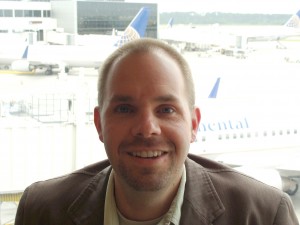By Nicholas Kralev
The Washington Times
August 3, 2009
Is the airline industry having a change of heart about the way it lets you spend your frequent-flier miles? After years of making mileage redemption difficult by limiting seats and adding steep fees for “free” tickets, the first signs are now emerging of some carriers’ realization that those policies may be backfiring.
Not only have they alienated customers, but they appear to have weighed heavily on the airlines’ books, in which unused miles are a major liability.
United Airlines, in particular, seems to really want you to burn your miles. After discounting domestic and European mileage tickets this year, it became the first major carrier last week to eliminate “close-in fees” of up to $100 for booking an “award” less than 21 days before travel.
Announcements about scrapping fees, rather than adding new ones, are very rare these days, and United’s decision was welcomed by both travelers and analysts who expressed hope that the rest of the industry will follow suit.
“I applaud United for this decision, and other airlines will likely be forced to match in order to remain competitive, since most frequent fliers are members of multiple programs,” said Christopher Staab, managing partner at Airline Information, an international consulting company.
In its announcement, United referred to the charges it rolled back as “standard last-minute booking fees,” but they didn’t even exist until a few years ago, when they were adopted by most of the industry as an easy way to make cash. United will continue to charge “handling fees” of up to $30 when you use the services of an agent on the phone or at the airport, as well as $150 if you change your routing. Date and time changes are free, and top elite members of its Mileage Plus program are exempt from all “award” fees.
“Charging booking fees for ‘free’ frequent-flier seats in order to drive revenues short term is a long-term losing strategy for airlines and sheer madness,” Mr. Staab said.
So why is United changing its policy now? Mileage Plus Vice President Robert Sahadevan said last week that customers “have told us that they want ease, flexibility and availability when using their miles, and we are listening.” That’s certainly commendable, but customers have been saying that for years. And how did United respond in the past?
First, according to various surveys, it became one of the airlines with the fewest number of “award” seats. In a survey released by the consultancy IdeaWorks in the spring, only 18 percent of attempted bookings between the United States and Europe were successful. In contrast, the success rate on American Airlines was 58 percent. US Airways was at the bottom with a mere 4 percent.
Second, United started blocking thousands of seats otherwise made available by its partners in the global Star Alliance to limit the compensation it must pay those carriers. Despite hundreds of complaints since the previously secret practice came to light last fall, the airline says it can’t afford to end it.
Third, it increased the mileage required for “free” tickets by as much as 40 percent on Jan. 1, although it kept the popular domestic coach “award” at 25,000 miles.
Since that move, however, United has dramatically altered its attitude toward mileage redemption. In the spring, it discounted trans-Atlantic coach “awards” by 15,000 miles, and domestic coach tickets by 5,000 miles last month. Flights on partner-carriers didn’t qualify for those limited promotions.
In addition to scrapping the close-in fees, domestic first-class “award” inventory has been rather generous this year. In fact, United has reversed its longtime practice of having more upgrade than “award” seats.
So again, why now? Companies don’t usually do things just to be nice to their customers, and there is a business motive behind any significant move. A United spokeswoman didn’t respond to an e-mail message seeking comment, but Mr. Staab said that airlines have pre-sold so many billions of miles to co-branded credit-card partners that, if those miles are not spent and remain on the books, “they are endangering their lucrative relationships” with those partners.
Fliers’ reluctance to spend miles apparently also has been affected by record-low airfares this year. They see no point in paying “award” fees that were almost as much as a revenue ticket, which allows them to save their miles. United hopes that ending those fees will encourage customers to book “awards” again.
“Hopefully, this is also a sign that United’s new CEO, John Tague, will address the customer-unfriendly reputation of his airline, as exemplified in the ‘United Breaks Guitars’ video, which has gone viral on YouTube,” Mr. Staab said in reference to a song written by Canadian musician Dave Carroll, who says that United baggage handlers in Chicago broke his guitar last year.
This column was first published by The Washington Times

